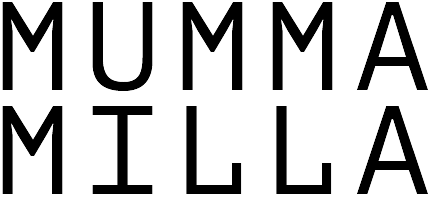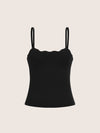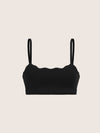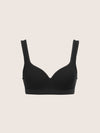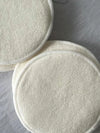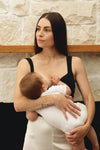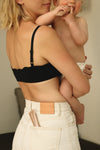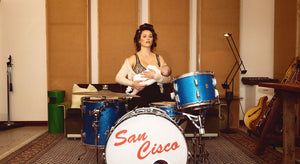Kate is a Naturopath, Nutritionist and clinical director of Boob to Food, and a mum of two (with number three on the way!)
Instagram : @kate_holm
Can you tell us a little bit about yourself
I'm Kate, a mum of 2 with a third on the way, naturopath, nutritionist, co-host of Boob to Food the podcast and clinical director the Boob to Food online clinic. I live in Newcastle NSW with my husband, kids and cat Koda - we relocated here from Sydney nearly 4 years ago and absolutely love it!
I have been a practicing naturopath and nutritionist for over a decade now - which absolutely blows my mind... I don't feel THAT old. I always knew Naturopathy and using food as medicine wasn't something that was always part of my life - in fact I only stumbled across both in my early 20's and was instantly fascinated. I've always had a passion for working with children, and love supporting children to have the best health and experience of life possible - which led me to the other part of my passion which is fertility and preconception support. Educating couples through this time is such a powerful way to positively influence the health of their children - as well as setting up healthy habits for the whole family. I feel genuinely so privileged to do what I do and so passionate about the world of nutrition and natural health.
Congratulations! We see Baby #3 is on the way.
How are you feeling?
Now I'm feeling great! The first trimester was a very different story though. I suffered with severe morning sickness, vomiting, all day nausea and migraines. The TV did a lot of parenting for me during this time, and it was really challenging to show up each day as a mum or in my work. Thankfully it has completely shifted - my energy feels great, I don't feel sick anymore, and I feel superhuman in comparison.
Gut health is so important during pregnancy and beyond - and at the same time I fully appreciate that it can be a challenging time to eat the foods you know you should eat or care for your health in the ways you normally would. I've been here too! I always say to my patients "just do what you can do". This is also the beauty of preconception work - we can give your body a bit of a buffer and some stores to draw on. Where possible, try to focus on the consumption of whole foods - that is food that is as close as possible to its natural state without unnecessary processing or refining. Things like bone broth soups, slow cooked meats, nourishing root vegetables, congee with bone broth and packing your plate with a variety of veggies are some great foundations. Focusing on foods rich in nutrients such as zinc and iron (red meat, liver, nuts and seeds etc), essential fatty acids (salmon, sardines, mackerel, flaxseeds, walnuts etc), choline (eggs, beef and beef liver), calcium (dairy foods, leafy greens, tahini, chia seeds, sardines) and iodine (seaweed, seafood, rolled oats, eggs) will help to ensure you are nourished through each trimester as well - but I do strongly recommend working with a practitioner during your pregnancy who can guide you around supplementation and anything specific you need.
I love this topic! In terms of foods to prepare for labour I really encourage women to focus on nutrient density as well as meals they can prepare in bulk so they can start creating a freezer stash. There is also some evidence to suggest that the consumption of 6 dates per day from 36 weeks may reduce the first stage of labour, improve cervical dilation and reduce the need for labour augmentation.
No matter how long your labour is, we need to see it for what it is - an incredible physical feat that requires a huge amount of energy! To my clients, and in terms of how to fuel the event, I liken it to a marathon.
There are two key things that you would focus on from a nutritional standpoint if you were crazy enough to run a marathon - hydration and sufficient carbohydrate intake. These are the same two things I would encourage you to focus on during labour - or even better, task your partner or birth support with fuelling you so that you can focus your energy and attention on bringing your baby earth-side.
Adequate hydration and electrolyte balance is important to maintain strong contractions and endurance throughout your labour. Dehydration can lead not only to fatigue, but can also cause contractions to be ineffective, slow or stop entirely. In the final weeks of pregnancy ensure you stock up on a variety of beverages to have on hand - filtered or sparkling mineral water, coconut water, miso soup, fresh juices, bone broth, beetroot kvass - or really anything that you think you might feel like! You may also like to keep an electrolyte replacement mix on hand as well as some of the above beverages frozen into ice blocks or ice cubes.
Just like in a marathon, during labour your body uses large amounts of glucose for energy and will quickly deplete glycogen reserves to meet energy demands. If these glucose stores are not consistently replenished then the muscles (and your mind!) will begin to fatigue and your body can move into ketosis - an ineffective state to be in while labouring.
Now is the time to reach for high glycemic, carbohydrate based snacks to ensure a constant supply of glucose - dates and bliss balls fruit, popcorn, crackers, homemade muesli bars or muffins or anything you think you might feel like! While we can aim for healthier choices, the goal is sufficient energy intake, so don’t stress too much if all you are really craving is pizza or ice cream!
Postpartum nourishment is so important. Above all else for recovery and milk supply is ensuring sufficient intake of calories and hydration. From there we can start to build in all of the therapeutic extras. A postpartum digestive system is incredibly delicate - your digestive organs have been squished for 9 months after all! I encourage women to eat foods that are easy to digest such as soups, broths, stews, slow cooked meats, congee, kitchari and therapeutic teas and other elixirs. Again a focus on wholefoods is ideal, with lots of warming and therapeutic spices such as ginger, cinnamon and turmeric for example. Minimise the consumption of raw foods in the early stages and instead opt for foods that are well cooked, warming and brothy. You may also like to include some foods that are known of as galactogogues (foods that may help to increase milk supply) such as oats, almonds, flaxseeds, fenugreek, fennel seed, chickpeas and brewer's yeast. Like during labour - we can have these principles as the benchmark, but ultimately it is important to eat foods you enjoy and can easily access. If you can have some meals in the freezer, order ready made meals, or set up a meal train so you don't have to prepare the food yourself that is even better.
Breastmilk really is liquid gold. It is tailored to your baby in terms of their nutritional and immunological needs. In the first few days they will be receiving colostrum which is a potent source of compounds such as immunoglobulins and lactoferrin to support their immune system as well as promote the maturation and health of the gut. Once the milk comes in a few days postpartum this is rich in calories, water, vitamins, minerals, proteins and fat to support baby's ongoing growth and development. It also contains melatonin which will be released in different amounts over the day to support the circadian rhythm (ie - better sleep for you!).
I had a wonderful breastfeeding experience with both of my children and hope for the same with my third! I loved breastfeeding and thankfully found that it came really naturally. Both my babies were boobie monsters, so I guess the lows only really started when I conceived again each time and found that I had a terrible feeding aversion. It really took me by surprise and I could not STAND the sensation of breastfeeding for quite a few months. I found this really hard emotionally - I felt so much guilt around the way I was feeling. Rationally I knew it wasn't anything to do with my babes and was entirely related to the pregnancy, but the response was so visceral and at times unbearable. My eldest self-weaned when he was about 20 months old, something I was initially saddened by, but thankful that we had moved through the aversion and back to more peaceful feeds before he made the call. My daughter I had to wean more proactively - she was around 27 months and the feeding aversion was showing no signs of relenting. I think with the experience of my son behind me I knew that we would still have such a beautiful relationship outside of breastfeeding, so felt ok about this - it was just a challenge to hold the boundary at times!
I personally used BOOB TO FOOD for both of my sons when introducing them to solids. Can you give mums who are entering the solids stage some tips?
Start slowly and follow your baby's lead. It isn't a race to get to 3 meals a day - we want to play the long game, encouraging our children to have a positive relationship with food, exploring a wide range of flavours, and ultimately for meal times to be an enjoyable and connecting experience for the whole family. Always come back to the division of responsibility - it is our job as parents and caregivers to decide what food we offer, when we offer it and where it is consumed, and our child's job to decide if they eat it and how much. Whether you choose spoon feeding, finger foods or a combination of both these same principles of respecting your child's appetite, desire, and connection to their own body can apply.
Things we can give our babies for iron instead of rice cereal :)
So many things. Your richest food sources of haem iron (the most bioavailable form) include red meat, liver, bone marrow and sardines. Non-haem sources of iron include egg yolks, parsley, prunes, almonds, pepitas, tahini and other leafy greens.
Like myself! It is honestly my favourite thing - I really feel like I found myself through motherhood and love and appreciate the life I get to live with my kids. I just feel so lucky to get to know them and love them, and am trying to soak up this time while they are little as much as I can.
Your idea of an ideal afternoon
An ideal afternoon for me would be somewhere outside soaking up the sunshine and fresh air. A picnic with my family, and bonus points if it also included a really good coffee (although I wouldn't typically drink that in the afternoon, but it WOULD be ideal!). A more typical ideal afternoon is snuggling up on the couch together to watch a movie, or getting into the kitchen to cook (although sometimes the amount the kids want to help can go from really enjoyable and ideal to VERY frustrating and messy!)
Your day on a plate – when you have two kids tugging at your trousers :)
My day changes so much depending on where we are, and I'm definitely prone to grazing all day, especially now while pregnant. Typically the day will start with a cup of tea first thing, and then breakfast with the kids which is usually porridge with toppings like seeds, nuts, yoghurt, fruit and nut butter, or it could be toast with eggs, or sometimes if I'm really lazy just peanut butter! Coffee always comes next without fail. Lunch would usually be dinner left overs, or we may make something like a big salad with mackeral or tuna, toasties, or if we are out and about we might get sushi. Dinner is very often meals from Newy Supply Co - through this pregnancy I have been obsessed with the Italian Pork Meatballs, or if we cook something at home it might be burrito bowls, noodles, a stew with slow cooked meat and veggies, or homemade pizza.
Any advice on what we should load our plates with to help
reduce postpartum depletion?
In the early days and weeks postpartum try to focus on foods that are warming and easy to digest, such as stews, soups, slow cooked meats with broth, congee, porridge with stewed fruit etc. In terms of nutrients the key ones that I would focus on are iron, omega 3 and protein - but all nutrients are important and a varied, nutrient dense, wholefood diet that you enjoy will be your best bet. Hydration is crucial too, especially if you are breastfeeding, so make sure you are getting plenty of fluids from water, herbal teas, smoothies, broths and even things like coconut water. If you can outsource the cooking, either to your friends and family who could set up a Meal Train, or to a meal delivery service like Newy Supply Co that is even better!
~ Kate wears our leakproof night bralette in black ~





